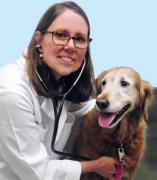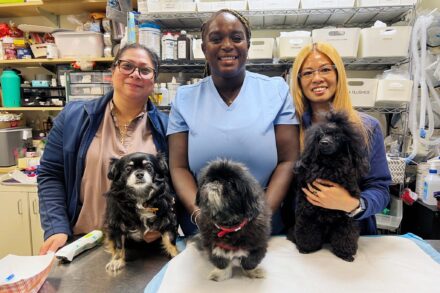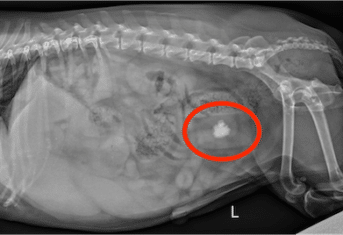Medicine By the Numbers

Medicine By the Numbers
We all rely on numbers to help us make decisions. The stock market is above 16,000; time to sell. Your chance of winning the Powerball Jackpot with a two dollar ticket is one in 175 million, but it’s only two dollars so you buy yet another losing ticket. One in four Americans dies of heart disease every year; more exercise and less butter for you. In my line of work, veterinary medicine, quoting numbers is not nearly as easy.
I have been struggling with a particularly complicated cancer case the past few weeks. After hours of discussion and many more of pondering the options, a clear plan has emerged for this patient. And then the client asked the number one question: “What are the chances my pet will benefit from this procedure?” Having never been much of a math whiz or very successful at gambling, explaining the concept of odds is difficult. The odds of A versus B are calculated from a large group of patients with the same disease. But when I am talking about Fluffy or Fido, it becomes harder to predict the outcome for an individual patient. In some ways it’s a 50-50 coin toss. Your pet gets better or it doesn’t. Because medicine rarely has 100% certainty, no doctor, human or animal, will ever guarantee a 100% chance of success. Even with a 99.9% chance of success, there will be some patients who do not have the desired outcome after the test, treatment or surgery is completed.
An article in last week’s New York Times ‘Science Section’ written by a physician, numbers and their connection to disease appear again. Dr. Abigail Zuger writes about using a reasoned numerical approach (“30 percent of people with your problem of X will develop Y”). Yet, she writes, “many studies (and all casinos and lotteries) illustrate how abysmal is the average person’s understanding of risk when couched in mathematical terms.” Her patients have a hard time grasping the importance of risk factors on their future health or as she calls them “pre-diseases.”
If two medical professionals have difficulty using numbers in their daily practice, then how can people or pet owners make well-informed decisions on healthcare matters?
- Preventing disease is much easier (and cheaper) than correcting a problem. If your veterinarian gives you numbers on preventing disease, pay close attention. For example, obesity quadruples your dog’s risk of cruciate ligament rupture. Getting your dog’s weight down saves money two ways – you buy less food and your dog doesn’t need an expensive reconstructive knee surgery.
- There are actually some medical conditions that doctors can predict the outcome with reasonable certainty; for example, diabetes. Without administration of insulin, which is deficient in dogs and cats with diabetes, your pet will die of high blood sugar within days.
- Since not all diseases come with certainty of outcome like diabetes, think about quality of life. If your pet’s current problem is decreasing their quality of life, consider a treatment to improve it. Keep in mind this is where numbers can become overwhelming and sometimes a decision is made based on your heart rather than your head.

































